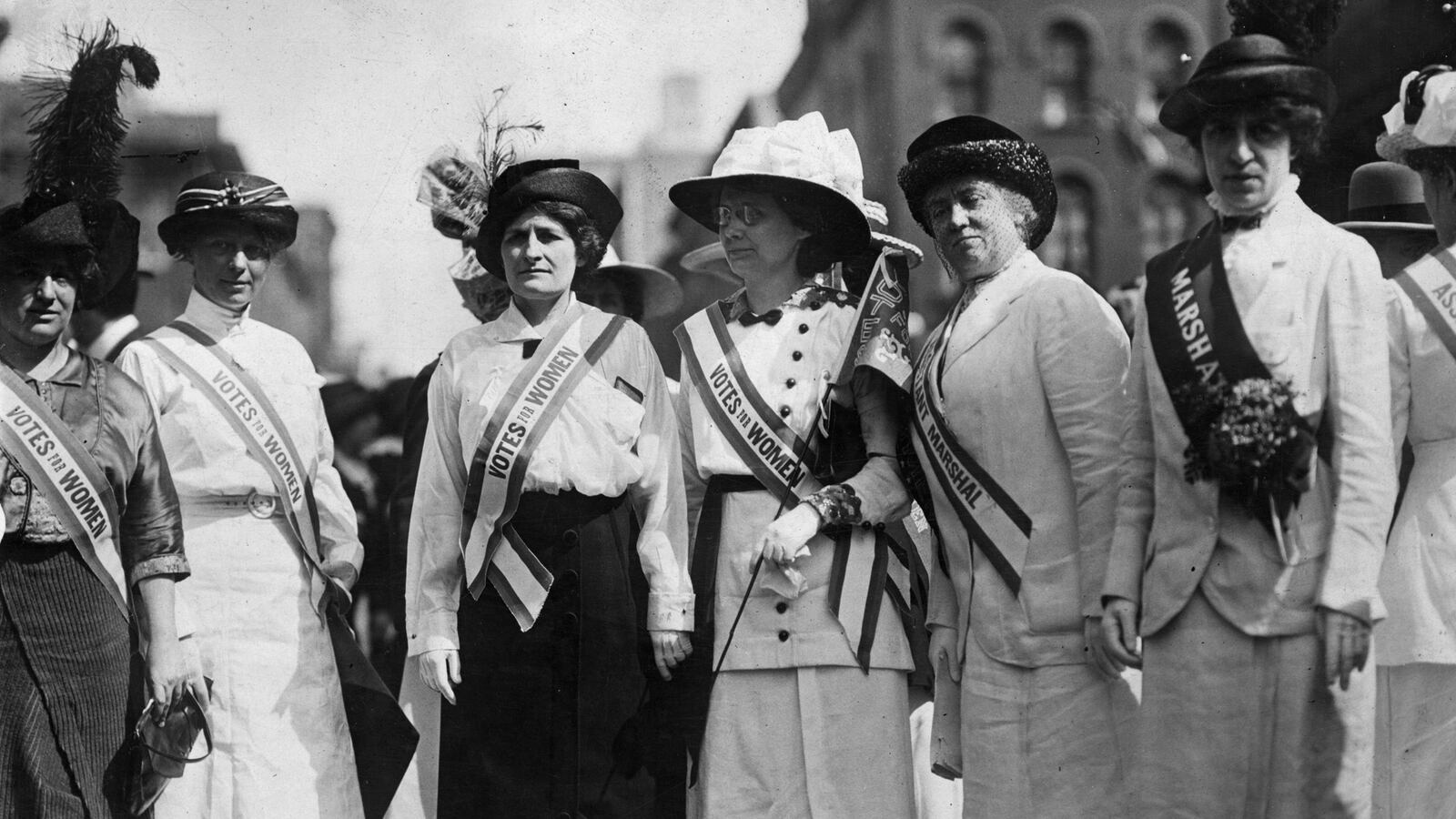Nothing is more fatal to literature than prosperity. It was Henry de Montherlant who said that happiness writes white. It leaves no trace. This is why the headlines always bring bad news, the world explodes a dozen different ways at the cineplex each summer, and comedies end as soon as there’s a wedding. It is a fact generally acknowledged that excessive happiness can kill a story. But can a joyful era—a golden age of peace and prosperity—sabotage its novelists? The answer can be found by scanning the list of novels published in the period immediately preceding World War I, the last time that the United States was, in the words of the historian Mark Sullivan, “a peaceful country in a particularly peaceful time.” It was a pleasant time to be an American, but an awful time for American fiction.

On the day that the Archduke Franz Ferdinand and his wife Sophie were assassinated, America, Sullivan wrote, was “sleeping the sleep of the well-fed, the care-free, the confident.” The newspapers that morning were a snooze, with headlines devoted to civil strive in Mexico, a gubernatorial election in New York, and a march on Washington by a group of suffragettes. There were anxious debates about the decision to begin playing baseball games on Sundays and about the rise of scandalous new dance styles (“Is the tango turning this country topsy-turvy?” asked the New York Sun). And the new literary and commercial sensation was a novel by Booth Tarkington about the misadventures of a mischievous 11-year-old boy named Penrod Schofield.
Penrod is a poor boy’s Tom Sawyer, a predecessor to Dennis the Menace and the Beaver. Fondly nicknamed “the Worst Boy In Town,” Penrod is conniving but not clever, wicked but rarely cruel. He dips a schoolmate’s braids in ink, paints his dog blue, and splashes his friends with tar (the enthusiastic misuse of paint, or paint-like substances, is an inexplicable motif). Penrod is an inattentive student but an active daydreamer, imagining himself flying out of his schoolroom, drifting “away from the painful land of facts,” and floating into “a new sea of fancy which he had just discovered.” The only person who understands him is his grandmother, who believes that a boy should not be made to apologize for his rambunctiousness, greed, or slovenliness, since these qualities are intrinsic to his nature. Apart from the book’s funniest episode—in which the sobriquet “little gentleman,” meant as a compliment, drives Penrod into an apoplectic fit—the humor is predominantly slapstick; the premises are identical to those you might find watching America’s Funniest Home Videos.
It’s tempting, one century later, to read Penrod in a spirit of nostalgia for a simpler, easier time. But even 1914 wasn’t this simple, or this easy. The most striking thing about reading Penrod today is the discovery that the novel is, itself, an exercise in nostalgia. There is a mournful quality to the prose that appears as early as the novel’s first sentence, where we meet a “morose” Penrod and his “wistful” dog, Duke. It resurfaces most strongly where Tarkington—now best known as the author of The Magnificent Ambersons and Alice Adams—interrupts the narrative with his own observations about boyhood and the passage of time:
What pleasanter sight is there than a schoolroom well filled with children of those sprouting years just before the ‘teens? The casual visitor, gazing from the teacher’s platform upon these busy little heads, needs only a blunted memory to experience the most agreeable and exhilarating sensations.
With a boy, trouble must be of Homeric dimensions to last overnight. To him, every next day is really a new day.
Maturity forgets the marvelous realness of a boy’s day-dreams, how colorful they glow, rosy and living, and how opaque the curtain closing down between the dreamer and the actual world.
Though Penrod was popular among young readers, Tarkington is speaking to an adult readership. This makes sense, for the novel is suffused by a nostalgia for the never-never land of childhood—a land that only exists in the memories of those who haven’t been children for a long time.
Did Penrod’s contemporary readers sense that the world as they knew it was about to change? 1914 was the year that Henry Ford became a household name, the first radio broadcast was made, and airplanes were first used in martial combat. World War I would reshape psychological boundaries as radically as it did geographical ones. Did readers turn to Tarkington’s rosy portrait of boyhood for consolation? It’s impossible to say. The one thing we know for certain is that, as far as the national literature is concerned, the war couldn’t have come fast enough. We might still feel nostalgic for the period’s innocence, but almost nobody today reads its novelists. The Great War was good for at least one thing: it saved American literature.
Other novels published in 1914:
Perch of the Devil by Gertrude AthertonTarzan of the Apes by Edgar Rice BurroughsThe Titan by Theodore DreiserPersonality Plus by Edna FerberOur Mr. Wrenn by Sinclair LewisThe Prince of Graustark by George Barr McCutcheon
Bestselling novel of the year:
The Eyes of the World by Harold Bell Wright
About this series:
This monthly series will chronicle the history of the American century as seen through the eyes of its novelists. The goal is to create a literary anatomy of the last century—or, to be precise, from 1900 to 2013. In each column I’ll write about a single novel and the year it was published. The novel may not be the bestselling book of the year, the most praised, or the most highly awarded—though awards do have a way of fixing an age’s conventional wisdom in aspic. The idea is to choose a novel that, looking back from a safe distance, seems most accurately, and eloquently, to speak for the time in which it was written. Other than that there are few rules. I won’t pick any stinkers.
Previous Selections
1902—Brewster’s Millions by George Barr McCutcheon1912—The Autobiography of an Ex-Coloured Man by James Weldon Johnson1922—Babbitt by Sinclair Lewis1932—Tobacco Road by Erskine Caldwell1942—A Time to Be Born by Dawn Powell1952—Invisible Man by Ralph Ellison1962—One Flew Over the Cuckoo’s Nest by Ken Kesey1972—The Stepford Wives by Ira Levin1982—The Mosquito Coast by Paul Theroux1992—Clockers by Richard Price2002—Middlesex by Jeffrey Eugenides2012—Billy Lynn’s Long Halftime Walk by Ben Fountain1903—The Call of the Wild by Jack London1913—O Pioneers! By Willa Cather1923—Black Oxen by Gertrude Atherton1933—Miss Lonelyhearts by Nathanael West1943—Two Serious Ladies by Jane Bowles1953—Junky by William S. Burroughs1963—The Group by Mary McCarthy1973—The Princess Bride by William Goldman1983—Meditations in Green by Stephen Wright1993—The Road to Wellville by T.C. Boyle2003—The Known World by Edward P. Jones2013—Equilateral by Ken Kalfus1904—The Golden Bowl by Henry James






